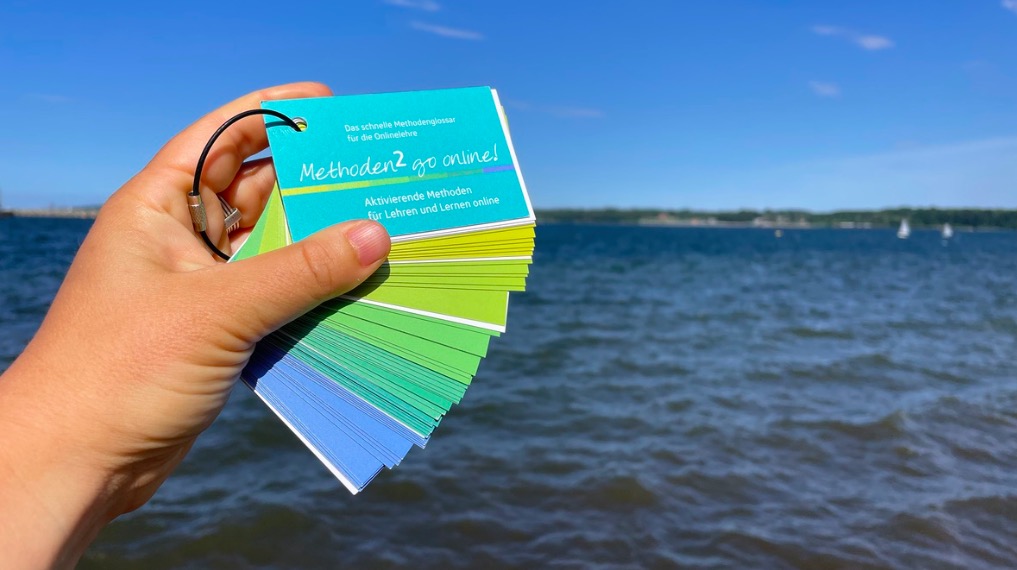
#Methods2Go: Methods for “arriving” in class, i.e. getting to know people & raising interest
Remember my recent #Methods2Go blog posts, inspired by E.-M. Schumacher’s “Methoden to go”? There is more! She kindly sent me the new “Methoden 2 go online!“* — bringing us tons of methods that are adapted for online use!
*this is not a sponsored post, all opinions are my own
This set of flashcards is structured in two parts: The first one presenting a lot of model using the AVIVA model (which gives five phases of a teaching unit: Arriving, assessing preVious knowledge, Informing, conVerting, evAluating (This works a lot better in German ;-)), and the second one listing interesting virtual learning tools. As already with “Methoden to go”, it’s a lot of fun to flip through and inspires thought!
Let’s get started, today with:
Arriving
Voting by covering the camera
Students use little pieces of paper (or their thumbs) to cover the camera to signal “no” as a response to a question, or leave the camera open (and thus their faces visible) to signal “yes”. This is great for a very quick vote on things, but also for students getting to know each other and finding out similarities (for example where they live, who has previous knowledge on or experience with what topic, …).
Awaking interest
I described the idea behind the “awaking interest” method in this blog post — this works just as well online as offline!
Feedback and interaction cards
The idea here is that teachers send out a file with symbols that students print and then use to hold up in front of the camera in response to questions (so a little bit like my ABCD cards, except with more symbols). At first, I thought this was a bit silly — almost all video meeting platforms do have chats and those “raise hand” buttons etc, but on the other hand I’ve been in plenty of meetings where messages in the chat and raised hands went unnoticed, so maybe holding something up in front of the camera is worth a try? Still seems like overkill to me to send out something that students have to print (also because I don’t have a printer at home and know how annoying it is if you need something printed during a pandemic), but maybe telling students that if they hold up a piece of paper with a questionmark on it, you will know they want to ask something rather than them just stretching? Might be worth a try!
“Wanted” poster
In order for you to get to know students and them getting to know each other, it might be a good idea to ask them for a couple of key facts about themselves, and to ask them to fill those in for example in a shared google slides doc, or whatever learning management system you are using. One question I like to ask students is to present their nerd topics (more about that here). Of course, it’s important to then make time to look through all those different presentations and acknowlege both the effort they went to and the content they put there. Otherwise you are sending a pretty strong signal that you don’t actually care as much about them as you pretended to when you gave this task…
Getting to know people via their virtual backgrounds
Ask students to set their virtual backgrounds to pictures that are meaningful to them, then let them talk about why it’s meaningful. I like this idea! I like to ask students to present their nerd topics, and while I usually ask them to post the pictures for that in a shared google slides document, for larger groups it could be useful if students kept the picture they talked about as virtual background so it’s easier to connect the topics with the names and faces.
P.S.: I am usually a proponent of avoiding virtual backgrounds as a teacher so as to not give students the impression that you try to hide as much of yourself from them as possible, but that doesn’t mean that they can’t be useful sometimes ;-)
That’s it for today! Next #TeachingTuesday: Methods for assessing previous knowledge!